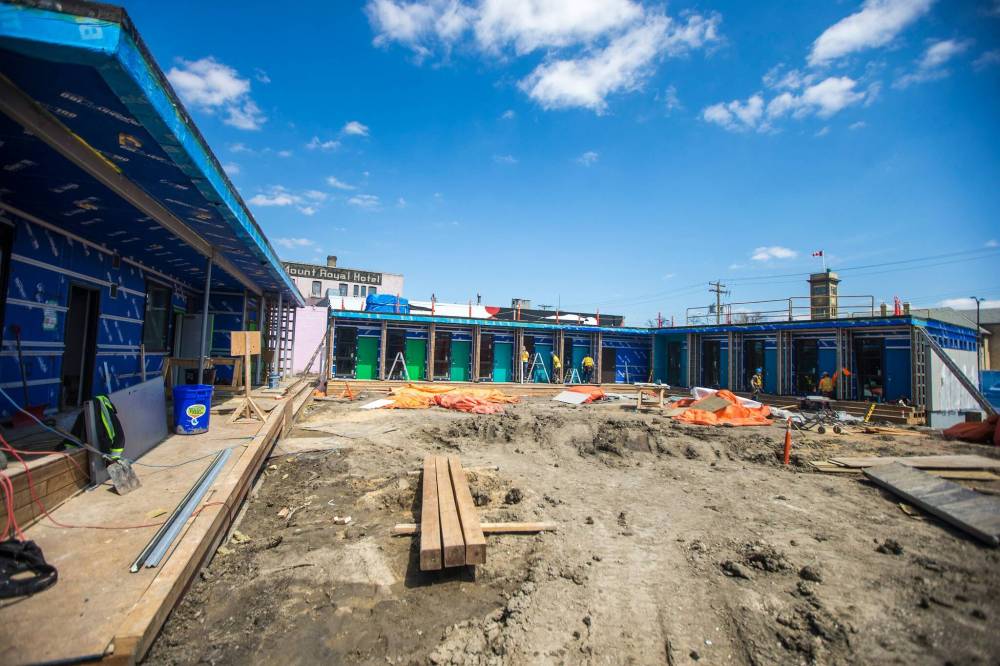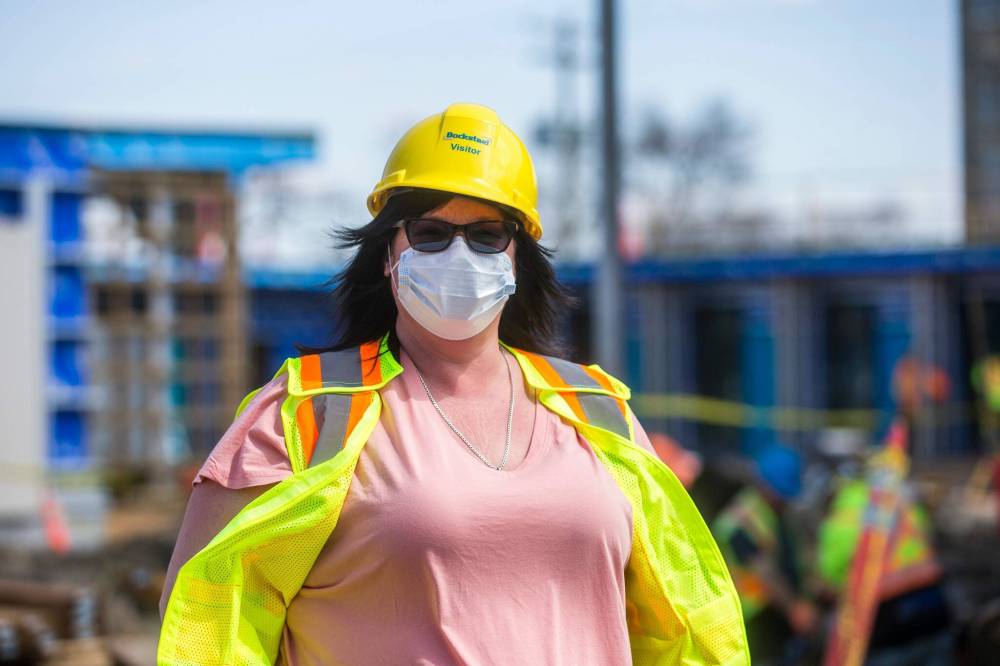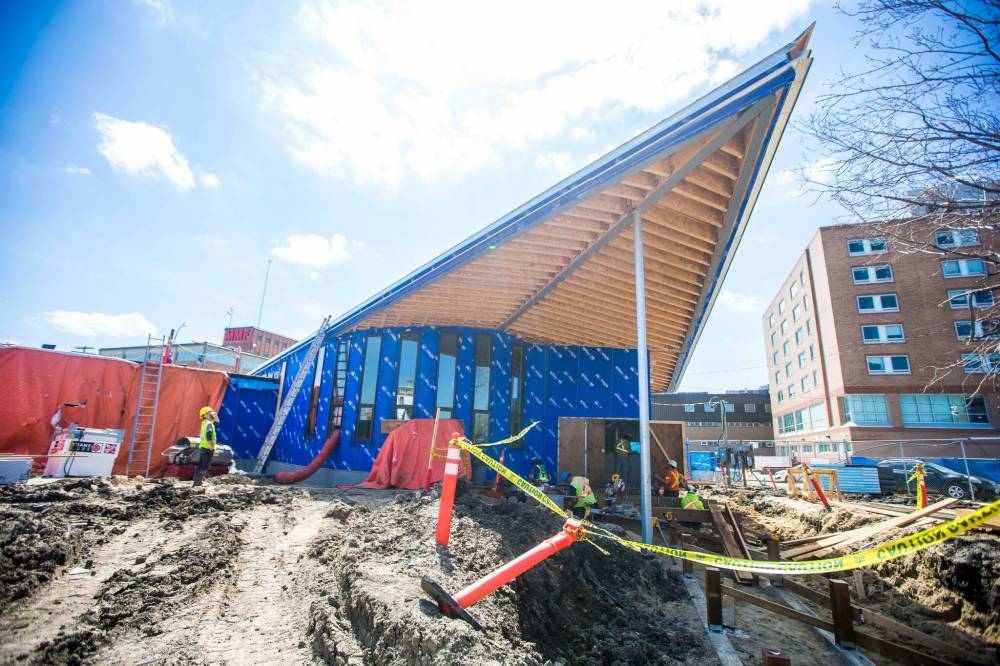Little homes, big dreams
Tiny housing units to address homelessness, but need money
Advertisement
Read this article for free:
or
Already have an account? Log in here »
To continue reading, please subscribe:
Monthly Digital Subscription
$0 for the first 4 weeks*
- Enjoy unlimited reading on winnipegfreepress.com
- Read the E-Edition, our digital replica newspaper
- Access News Break, our award-winning app
- Play interactive puzzles
*No charge for 4 weeks then price increases to the regular rate of $19.00 plus GST every four weeks. Offer available to new and qualified returning subscribers only. Cancel any time.
Monthly Digital Subscription
$4.75/week*
- Enjoy unlimited reading on winnipegfreepress.com
- Read the E-Edition, our digital replica newspaper
- Access News Break, our award-winning app
- Play interactive puzzles
*Billed as $19 plus GST every four weeks. Cancel any time.
To continue reading, please subscribe:
Add Free Press access to your Brandon Sun subscription for only an additional
$1 for the first 4 weeks*
*Your next subscription payment will increase by $1.00 and you will be charged $16.99 plus GST for four weeks. After four weeks, your payment will increase to $23.99 plus GST every four weeks.
Read unlimited articles for free today:
or
Already have an account? Log in here »
Hey there, time traveller!
This article was published 09/05/2022 (1312 days ago), so information in it may no longer be current.
Organizers hope the dream of Astum Api Niikinaahk will finally become a reality this summer.
Construction is about three-quarters complete on the 22 small housing units at 171 Henry Ave., which are spread between three main structures tucked behind Thunderbird House on Main Street.
The homes are designed to offer affordable housing for people facing key barriers such as addictions and homelessness, alongside a communal lodge with culturally sensitive support services.

“We’ve created, hopefully, homes for folks who are going to start their healing journey, or (are) midway in their healing journey and just need a little support,” said Melissa Stone, co-ordinator for the project formerly known as The Village.
The new name, Astum Api Niikinaahk, translates to “come sit at our home.”
Stone, who works on the project through the Ma Mawi Wi Chi Itata Centre, said the new homes are desperately needed, since unsheltered Winnipeggers must devote so much of their lives to getting their basic needs met.
“I get to go home to my house with heat and food and a bed (each day). They spend their entire life on the street searching for all of that,” she said.
The organization hopes to open up the homes to residents within a few months, ideally this summer, though Stone noted an exact date hasn’t been set. Each unit will be rented for about $500 a month, to ensure the full tab can be covered by employment income assistance rent credits and the Canadian Mortgage and Housing Benefit, for those who have those benefits.
The project has not been spared from pandemic challenges.
Stone said $5.9 million was secured to pay for the project. But the cost of construction is expected to rise about $1.2 million to $1.5 million higher, thanks to recent cost hikes for labour and materials.
“There’s a construction and operational deficit now that we are working on and needing dollars for … Concrete has gone up, steel has gone up, labour has gone up. Everything has skyrocketed,” said Stone.
Construction woes forced some changes to the project itself. The original proposal featured 22 tiny homes made out of recycled shipping containers. After the price to complete that plan shot up by $1 million, it was replaced with a new design for structures that include multiple homes.

Four of the units will be accessible.
Stone estimates the project will also require about $1.3 million per year to cover its operations, which are expected to include 24/7 supports for residents, a full-time cultural knowledge keeper and maintenance.
Organizers had hoped the construction would wrap up in November but a tough, long winter and supply-chain issues delayed that.
Stone said there’s a clear need in the community to secure the rest of the funding, so the site can operate to its full potential. She noted this site won’t require those using drugs to get sober before they can get help, so it will serve vulnerable folks who may not be accepted into other forms of housing.
“They are wanting to start their journey into not being homeless (but there may also be) lots of underlying issues and trauma that folks carry. And so we all know that there’s a reason why folks are using (drugs) and the No. 1 reason is to cope with not having the essentials, like food, appropriate shelter for yourself,” she said.
Lissie Rappaport, the manager of housing supply at End Homelessness Winnipeg, said the Indigenous-led project should become a model for offering culturally sensitive supports to those in need, especially since an estimated two-thirds of Winnipeggers who are homeless are Indigenous.
“Depending where people are at in their healing journey, they need supports and it’s really critical for people to have culturally relevant supports,” said Rappaport. “I think it adds a lot of see Indigenous organizations taking control for housing solutions. It’s an act of reconciliation and self-governance that we need to see in our city.”
End Homelessness Winnipeg is one of several organizations supporting the project, which also includes the Aboriginal Health and Wellness Centre, Eagle Urban Transition Centre and Thunderbird House.

“It’s a really creative, Indigenous-led solution to housing and really helping the most vulnerable people in our community. We hope it’s going to be the first of many more that can be replicated across our city,” said Rappaport.
With folks sleeping in bus shelters and encampments around the city, homelessness became far more visible during the pandemic, she noted, when those who previously could stay with friends or family suddenly lacked options.
“I think it’s just been a really hard few years,” she said.
Joyanne.pursaga@freepress.mb.ca
Twitter: @joyanne_pursaga

Born and raised in Winnipeg, Joyanne loves to tell the stories of this city, especially when politics is involved. Joyanne became the city hall reporter for the Winnipeg Free Press in early 2020.
Our newsroom depends on a growing audience of readers to power our journalism. If you are not a paid reader, please consider becoming a subscriber.
Our newsroom depends on its audience of readers to power our journalism. Thank you for your support.


